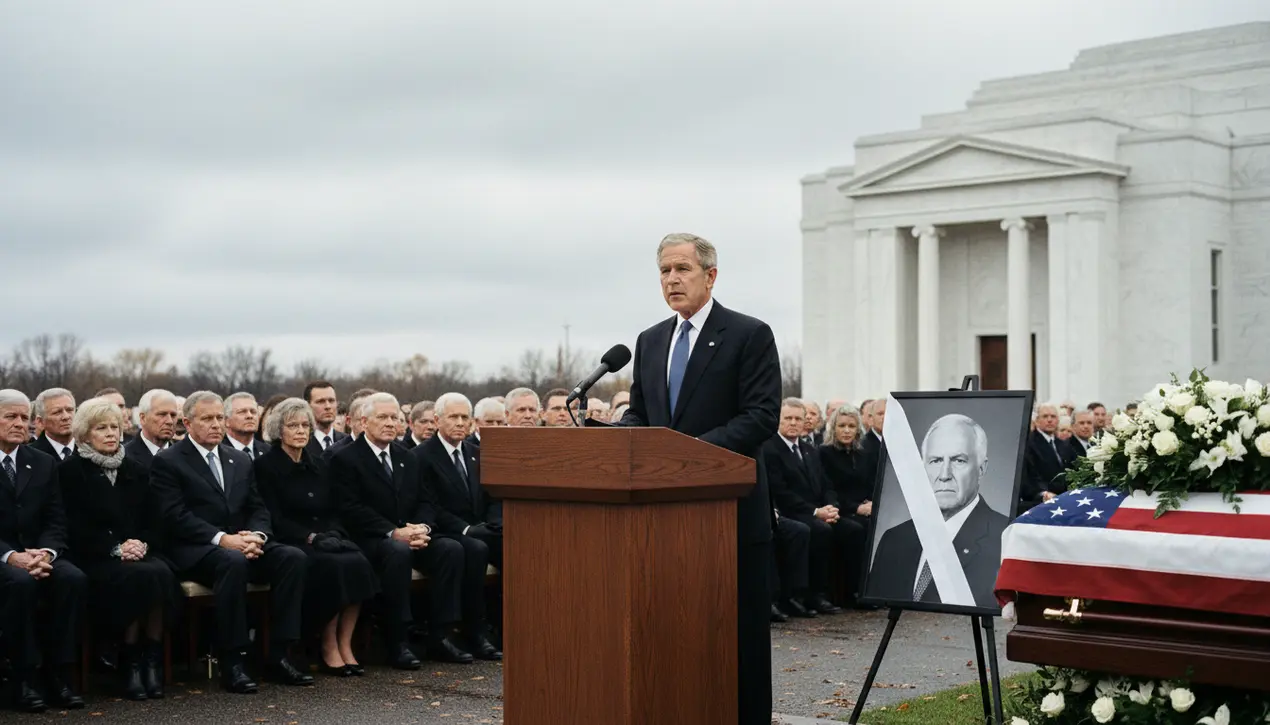
Politicsgovernments & cabinetsLeadership Transitions
Bush Honors Dick Cheney at Funeral as a Thinker.
RO
Robert Hayes
2 days ago7 min read2 comments
In a solemn ceremony befitting a man who operated for decades in the corridors of power, former President George W. Bush eulogized his Vice President, Dick Cheney, who passed away in early November at 84 from complications of pneumonia and cardiac and vascular disease.The funeral service was less a public spectacle and more a gathering of the Republican establishment, a quiet testament to a figure whose influence far outstripped his public popularity. To honor Cheney as a 'thinker,' as Bush did, is to engage with the complex legacy of one of the most consequential and controversial vice presidents in American history, a man whose intellectual framework was shaped in the crucible of the Cold War and irrevocably altered by the attacks of September 11, 2001.Cheney’s career was a masterclass in the application of concentrated power, a trajectory that saw him rise from White House Chief of Staff under Gerald Ford to Secretary of Defense under George H. W.Bush, where he oversaw the meticulously planned Operation Desert Storm—a conflict marked by overwhelming force and clear exit strategies, a stark contrast to what would follow. His return to the executive branch in 2001 was not as a mere constitutional understudy; he reimagined the vice presidency itself, expanding its authority into an unprecedented nexus of influence over national security, intelligence, and energy policy.This expansion was rooted in a distinct philosophy, one forged in the halls of the Pentagon and the secure, undisclosed locations of a nation on war footing. He was a principal architect of the Bush Doctrine of preemptive action, a radical departure from decades of containment and deterrence, and a vigorous proponent of enhanced interrogation techniques, which he defended as legally justified and necessary for national survival.His unwavering belief in a robust, almost untouchable, unitary executive branch frequently placed him at odds with Congress, the courts, and public opinion, leading to historic clashes over surveillance programs and the treatment of detainees. To analyze Cheney is to draw a historical parallel to other formidable, polarizing figures in government—a 21st-century version of a wartime consigliere, whose steadfast convictions invited both deep loyalty from allies and fierce condemnation from critics who saw his policies as an erosion of civil liberties and international law.The consequences of his 'thinking' are woven into the very fabric of contemporary America: the ongoing debates over executive power, the forever wars in the Middle East whose geopolitical aftershocks are still felt today, and a political discourse permanently scarred by deep partisan divisions over security and liberty. His funeral, therefore, was not just the closing of a chapter but a moment of reflection on an ideological era he helped define—an era of certitude in a world of shadows, whose long shadow continues to fall upon every subsequent discussion of presidential authority and America's role in the world.
#featured
#Dick Cheney
#funeral
#George W. Bush
#eulogy
#vice president
#politics
Stay Informed. Act Smarter.
Get weekly highlights, major headlines, and expert insights — then put your knowledge to work in our live prediction markets.
Comments
Loading comments...
© 2025 Outpoll Service LTD. All rights reserved.